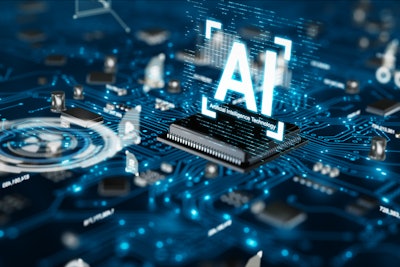
In today's technological landscape, the excitement surrounding generative AI (GenAI) is palpable. Companies across industries are eager to harness AI's transformative potential, but this enthusiasm is often tempered by a critical gap: many organizations lack the expertise and resources to effectively train their teams in AI skills. This is particularly evident in supply chain organizations, where the ambition to implement AI is high, efforts have been made, yet tangible value remains elusive.
This hesitation stems from uncertainty, particularly around articulating AI's value and implementing it in a way that ensures ROI. Many organizations recognize AI's potential but are unsure how to proceed, raising the risk of failure and financial loss. To mitigate these risks and drive successful AI integration, businesses need a clear roadmap—one that outlines both strategic benefits and concrete steps for evaluating and leveraging GenAI investments.
First, focus on business outcomes
For GenAI to deliver meaningful impact, businesses must focus on aligning AI implementations with key business outcomes. Different industries have diverse KPIs, and identifying how GenAI can enhance them is critical for building a strong business case. This begins with recognizing GenAI's potential to drive operational efficiencies.
One of the primary benefits of GenAI is its ability to automate time-consuming tasks, such as data analysis, allowing businesses to operate faster while reducing costs. For supply chains, this might translate into streamlining processes that currently require human intervention or eliminating bottlenecks that slow down operations. By offloading repetitive tasks to AI, employees can focus on higher-value work, improving productivity and driving better business outcomes.
Revenue growth is another crucial aspect. GenAI, when properly deployed, can enhance customer experiences by automating mundane tasks and enabling hyper-personalization. For instance, supply chain professionals could use AI to analyze customer behavior in real time, delivering tailored recommendations or addressing issues proactively. The result is improved customer satisfaction and retention, which fuels revenue growth.
Additionally, GenAI optimizes processes, minimizes errors, and reduces human intervention in routine tasks, ultimately driving down operational costs. Whether through automation or predictive analytics, AI solutions allow businesses to lower expenses while maintaining or even enhancing service quality—leading to a stronger RO).
Let’s get specific: Tailoring GenAI to industry needs
No matter how promising the use cases may be, it’s essential to remember that GenAI is still relatively new. To gain widespread support and adoption, businesses must articulate the value of AI in ways that resonate with different stakeholders, from executives to employees. The more specific the use case, the easier it will be for teams to understand, align, and become invested in AI's potential.
Here’s how GenAI can be applied across industries:
· Supply chain: GenAI offers transparency in operations by building real-time scenarios around orders, inventory, and shipments. This allows organizations to react swiftly to changes in demand or supply chain disruptions, enhancing resilience.
· Healthcare: In healthcare, AI can aid in drug discovery, automate diagnostics, and provide real-time analysis of patient data, which can improve decision-making and patient outcomes.
· Finance: GenAI is revolutionizing finance by enhancing fraud detection capabilities and automating financial reporting processes. These improvements provide more secure transactions and reduce the risk of errors, protecting both customers and financial institutions.
· Retail: AI can enhance customer experiences in retail by personalizing product recommendations and forecasting demand more accurately. Additionally, it can automate tasks such as inventory management, freeing up staff to focus on strategic initiatives.
These specific applications demonstrate GenAI’s versatility and its ability to drive value in various industries.
Future-proofing your investment
Implementing GenAI is not a one-time project; it’s an ongoing investment. Scalability should be top of mind—organizations need to ensure that AI can reach every part of the business, providing value across functions. This is particularly true for supply chain operations, where the entire value chain can benefit from AI-driven efficiencies.
Scaling GenAI across business functions, from customer engagement to internal operations, ensures that the technology delivers long-term value, well beyond its initial use cases. Businesses must view AI investments as critical infrastructure that will help them remain competitive in an increasingly AI-driven world. Despite the upfront costs, including the billions being spent on building massive AI data centers and the power plants to supply them, the long-term gains make the investment worthwhile.
By future-proofing their AI strategies, companies can also prepare themselves for future technological advancements. With estimates suggesting that 97% of organizations will be using GenAI in some capacity by 2025, it’s time to get on board—and the more on board, the better.
However, a key element of future-proofing lies not only in the technology itself but also in the people who use it. Organizations need to significantly upskill their workforce, ensuring employees are well-versed in the next generation of tools and technologies. There’s currently a disconnect between decision-makers driving AI adoption and the employees expected to execute on these strategies. Without adequate training, this gap could lead to operational disruptions, undermining the benefits of AI implementation.
Embracing change with confidence
The prospect of GenAI implementation is undoubtedly exciting, particularly for supply chain organizations facing complex operational challenges. By leveraging AI, companies have the potential to transform their processes, enhancing efficiency, resilience, and customer satisfaction. But as with any major change, the journey can be daunting.
To navigate these challenges, organizations need to address concerns head-on, ask the right questions, and invest in comprehensive training. The key to a smooth transition lies in forming the right partnerships and making a commitment to prepare the workforce for the changes ahead. With these elements in place, supply chain organizations can confidently embrace GenAI, transforming their operations and securing a bright future in an increasingly AI-driven world.
By focusing on business outcomes, tailoring AI solutions to specific industry needs, ensuring scalability, and empowering employees, businesses can not only embrace the future of AI but thrive in it.




















